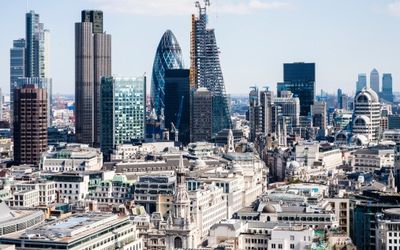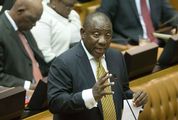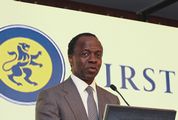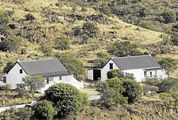SOUTH Africans with property in the UK will in future be liable for capital gains tax there once they sell their property, following an announcement last month that the tax will be introduced in the UK from April next year.
The South African economy is likely to lose revenue because of the step, as the UK would in future be getting the tax instead of South Africa, Michael Honiball, partner in the tax department of law firm Webber Wentzel, said on Tuesday.
South Africa’s domestic laws, besides its double tax treaties, provide for double tax relief, crediting South African taxpayers for tax paid in a foreign jurisdiction. The rate of capital gains tax on the gains made by nonresidents, such as South Africans, in the UK will be 28%, compared with the 13.3% they are charged in South Africa.
South Africans now pay 13.3% on the gains of property sold in the UK to the South African fiscus. From next year, they will pay 28% in the UK and 13.3% in South Africa, but due to the double tax relief they will only pay capital gains tax in the UK because of the higher rate in the UK, Mr Honiball said.
"Although they will be paying more tax than before, it is doubtful that it would impact on their decision to buy property in the UK ."
The announcement reverses an almost 50-year-old policy that allowed individuals, whether British expatriates or overseas buyers, to invest directly in UK property without paying tax on any gains once the property was sold, said Rupert Worsdale, tax partner with advisory firm Maitland in South Africa on Monday. UK Chancellor of the Exchequer George Osborne made the announcement.
Mr Worsdale said the UK government aimed to increase revenue and to prevent a London property bubble. "A number of commentators are suggesting that the new rules would lead to a reduced appetite for high-end residential property.
"This is doubtful, as London residential property is regarded as a safe-haven asset and the new tax is unlikely to change this."
Mr Honiball said the decision to introduce capital gains tax on nonresidents in the UK was not unusual. "It has been unusual for them not to have had capital gains tax imposed on foreigners."
In most foreign jurisdictions Britons pay capital gains tax if they own and sell property. In South Africa they are charged capital gains tax at a rate of 13.3%.
"They are simply conforming to global best practice where gains on immovable property are taxed in the place where it is," Mr Honiball said. "Therefore, the move is not unexpected ."
Mr Worsdale said there was anecdotal evidence of many South Africans with property in the UK, although the value or number of their assets are unknown. The UK does not keep record of the nationalities of property buyers.
The South African Reserve Bank, which governs exchange control regulations, allows South Africans to invest up to R4m abroad. In addition, up to R1m, within the single discretionary allowance facility, can be transferred abroad.
Mr Worsdale said South Africans with property in the UK would have to have their assets valued before April 6 next year to provide for a base cost from where gains could be calculated.
Mr Honiball said the aim with the tax was to keep property prices down in central London where rich foreigners had been buying up bargains because of the "no (capital gains) tax system". This had pushed locals out of the property market.
"It will, of course, bring extra revenue, but the stated intention is for it to equal the playing field for foreigners and locals."
The UK imposed capital gains tax from April 1 last year on high-value residential property (more than £2m) owned by a company or other corporate bodies.
Mr Worsdale said that the latest proposal was likely to apply to all nonresidents, including individuals and trustees. In addition, it would apply to all residential properties, irrespective of their value.
Hugo van Zyl, cross-border tax and exchange control specialist, said he was aware of South Africans with property in the UK, especially London, who were considering selling it before the new capital gains tax was introduced.
He said he was not completely convinced that the proposed new tax would not force foreigners to sell their property before the introduction of capital gains tax.
He has already been asked by some South Africans with property in the UK to do the calculation of the possible effect the introduction of the 28% tax could have on profits if the property was sold now, or when it was sold after April 2015.
He said many South Africans bought property in the UK with the intention of letting it since the rental market in London is quite robust. Some said they would keep the property for this reason, or pass it on to their children who are UK residents. He said they were not affected by the capital gains tax introduced on high-value residential property owned by a company or other corporate bodies last year, but will be affected by the new 28% capital gains tax on all residential property owned by non-residents in the UK.

The City of London. Picture: THINKSTOCK
SOUTH Africans with property in the UK will in future be liable for capital gains tax there once they sell their property, following an announcement last month that the tax will be introduced in the UK from April next year.
The South African economy is likely to lose revenue because of the step, as the UK would in future be getting the tax instead of South Africa, Michael Honiball, partner in the tax department of law firm Webber Wentzel, said on Tuesday.
South Africa’s domestic laws, besides its double tax treaties, provide for double tax relief, crediting South African taxpayers for tax paid in a foreign jurisdiction. The rate of capital gains tax on the gains made by nonresidents, such as South Africans, in the UK will be 28%, compared with the 13.3% they are charged in South Africa.
South Africans now pay 13.3% on the gains of property sold in the UK to the South African fiscus. From next year, they will pay 28% in the UK and 13.3% in South Africa, but due to the double tax relief they will only pay capital gains tax in the UK because of the higher rate in the UK, Mr Honiball said.
"Although they will be paying more tax than before, it is doubtful that it would impact on their decision to buy property in the UK ."
The announcement reverses an almost 50-year-old policy that allowed individuals, whether British expatriates or overseas buyers, to invest directly in UK property without paying tax on any gains once the property was sold, said Rupert Worsdale, tax partner with advisory firm Maitland in South Africa on Monday. UK Chancellor of the Exchequer George Osborne made the announcement.
Mr Worsdale said the UK government aimed to increase revenue and to prevent a London property bubble. "A number of commentators are suggesting that the new rules would lead to a reduced appetite for high-end residential property.
"This is doubtful, as London residential property is regarded as a safe-haven asset and the new tax is unlikely to change this."
Mr Honiball said the decision to introduce capital gains tax on nonresidents in the UK was not unusual. "It has been unusual for them not to have had capital gains tax imposed on foreigners."
In most foreign jurisdictions Britons pay capital gains tax if they own and sell property. In South Africa they are charged capital gains tax at a rate of 13.3%.
"They are simply conforming to global best practice where gains on immovable property are taxed in the place where it is," Mr Honiball said. "Therefore, the move is not unexpected ."
Mr Worsdale said there was anecdotal evidence of many South Africans with property in the UK, although the value or number of their assets are unknown. The UK does not keep record of the nationalities of property buyers.
The South African Reserve Bank, which governs exchange control regulations, allows South Africans to invest up to R4m abroad. In addition, up to R1m, within the single discretionary allowance facility, can be transferred abroad.
Mr Worsdale said South Africans with property in the UK would have to have their assets valued before April 6 next year to provide for a base cost from where gains could be calculated.
Mr Honiball said the aim with the tax was to keep property prices down in central London where rich foreigners had been buying up bargains because of the "no (capital gains) tax system". This had pushed locals out of the property market.
"It will, of course, bring extra revenue, but the stated intention is for it to equal the playing field for foreigners and locals."
The UK imposed capital gains tax from April 1 last year on high-value residential property (more than £2m) owned by a company or other corporate bodies.
Mr Worsdale said that the latest proposal was likely to apply to all nonresidents, including individuals and trustees. In addition, it would apply to all residential properties, irrespective of their value.
Hugo van Zyl, cross-border tax and exchange control specialist, said he was aware of South Africans with property in the UK, especially London, who were considering selling it before the new capital gains tax was introduced.
He said he was not completely convinced that the proposed new tax would not force foreigners to sell their property before the introduction of capital gains tax.
He has already been asked by some South Africans with property in the UK to do the calculation of the possible effect the introduction of the 28% tax could have on profits if the property was sold now, or when it was sold after April 2015.
He said many South Africans bought property in the UK with the intention of letting it since the rental market in London is quite robust. Some said they would keep the property for this reason, or pass it on to their children who are UK residents. He said they were not affected by the capital gains tax introduced on high-value residential property owned by a company or other corporate bodies last year, but will be affected by the new 28% capital gains tax on all residential property owned by non-residents in the UK.























Register/Login
Close XMy News
You can only set up or view personalised news headlines when you are logged in as a registered user. Thereafter you can choose the sectors of industry in which you are interested, and the latest articles from those sectors will display in this area of your console.
Login or Register.Top Stories
My Watchlist
You can only set up or view your share watchlist when you are logged in as a registered user. Thereafter you can select a list of companies and enter your share details to monitor their performance.
Login or Register.My Clippings
You can only clip articles when you are logged in as a registered user. Thereafter you can click on the "Read later" icon at the top of an article to save it to this area of your console, where you can return to read it at any time.
Login or Register.Change: -1.21%
Change: -1.31%
Change: -1.11%
Change: -1.12%
Change: -2.16%
Data supplied by Profile Data
Change: 0.00%
Change: 0.00%
Change: -1.21%
Change: 0.00%
Change: 0.00%
Data supplied by Profile Data
Change: -0.02%
Change: -0.06%
Change: -0.06%
Change: -0.09%
Change: -0.38%
Data supplied by Profile Data
Change: 0.00%
Change: 0.00%
Change: 0.00%
Change: 0.00%
Change: 0.00%
Data supplied by Profile Data